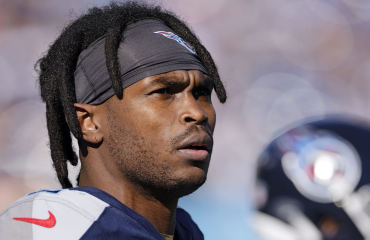Celebrities often deny, keep quiet about their plastic surgery. Why that's problematic. – USA TODAY
Nose jobs. Lip fillers. Brazilian butt lifts. It’s no secret that much of Hollywood beauty isn’t 100% natural.
Many celebrities have opened up about their cosmetic procedures. Take, for instance, Kaley Cuoco, who was lauded for openly discussing her plastic surgeries.Or Dolly Parton, who famously said “if something is bagging, sagging or dragging, I’ll tuck it, suck it or pluck it.” Or Amy Schumer, who recently opened up on Instagram about dissolving her fillers.
But there’s also a plethora of stars who dodge or outright deny that they’ve had work done – despite seemingly drastic and overnight transformations. Kylie Jenner repeatedly rebuffed rumors she had lip fillers before eventually copping to having the work done. (She later said she regretted lying and should have “just been honest and up-front.”) And Tyra Banks eventually admitted to secretly getting a nose job early in her career after years of denying plastic surgery rumors, writing in her 2018 memoir “I admit it!”
Yet some stars never come forward. And with the rising popularity of more subtle, injectable procedures, like Botox and lip fillers, it’s difficult to know if a celebrity has altered their appearance. So does it matter? Do fans deserve to know the looks that they may aspire to emulate involved a plastic surgeon?
More on celebrity worship:‘Stan’ culture needs to stop – or at least radically change. Here’s why.
There is nothing wrong with getting plastic surgery, clarifies Daniel Barrett, a board-certified plastic surgeon in Beverly Hills with over 1.8M TikTok followers. However, there is a difference between choosing not to disclose it and blatantly lying about it.
“Many celebrities look good naturally, but many also have work done. And when they’re not honest about it, I think they’re being unethical because they’re in the spotlight. They’re benefitting from being a celebrity and have a moral obligation to be transparent about anything they’ve had done that helps them achieve a certain look,” he says.
When these influential figures intentionally deceive young, impressionable fans, this can perpetuate unrealistic beauty standards and convey a dangerous message: that fuller lips or slimmer noses are naturally attainable. But in reality these “perfect” appearances may have been curated by dietitians, photoshop and even plastic surgeons.
‘I look artificial’ but I’m still real:Dolly Parton isn’t afraid to talk plastic surgery
“The psychological pressure to meet societal beauty standards can be difficult to manage, especially because it can leave you feeling like you’re never good enough,” says Naomi Torres-Mackie, head of research at the Mental Health Coalition, calling these beauty comparisons “a rigged race that’s unwinnable.”
As a result, young girls who look up to these stars may develop negative body image or low self-esteem. According to a 2014 study, those who “worship” celebrities may “harbor concerns about body image, be more prone to cosmetic surgery” and were more likely to struggle with their mental health.
“If you are made to believe that you won’t be good enough without meeting a standard, and that standard is unmeetable, it can leave you questioning your self-worth, which can negatively impact mood, relationships, and general mental health,” Torres-Mackie adds.
Unrealistic beauty standards:Khloe Kardashian’s nose job confession and the pressure to look perfect
While celebrities are encouraged to be honest, experts agree nobody should feel forced to disclose private, personal decisions. Despite their lavish lifestyles, celebrities are people too, grappling common issues related to body image and self esteem.
“We all assume celebrities are these big, bad people with great, strong, fortified egos, but they aren’t,” Barrett reminds. “Imagine you’re a very successful, talented person and you’re held under a microscope for body image things you’ve never even thought about.”
Khloe Kardashian said as much when she admitted she’d had a nose job.
“My soul is at a breaking point in regards to the public thinking they’re allowed to talk about my weight, my face, my personal life,” she said at the time.
‘Humbling reminder that we’re all human’:Cardi B was desperate for acne help and asked Twitter: Why her honest post is ’empowering’
Torres-Mackie says admitting to cosmetic work “takes a certain level of vulnerability.”
“It’s a brave thing to do that could potentially help others,” she says.
It’s tempting to compare yourself to these seemingly perfect influencers, but Torres-Mackie says it’s healthier to separate who you are from what you or others look like.
“In a culture where a lot of value is placed on appearance, it takes a lot of effort to distance yourself from that,” she says. “Consider unfollowing social media accounts that leave you feeling bad. Be mindful as you scroll about which accounts leave you feeling good and which leave you second guessing your own value. Unfollowing those is a way of practicing trigger elimination.”
In-depth feature:Glute pumping, lip plumping, skin smoothing: TikTok trends insist the body is always something to improve. At what cost?



